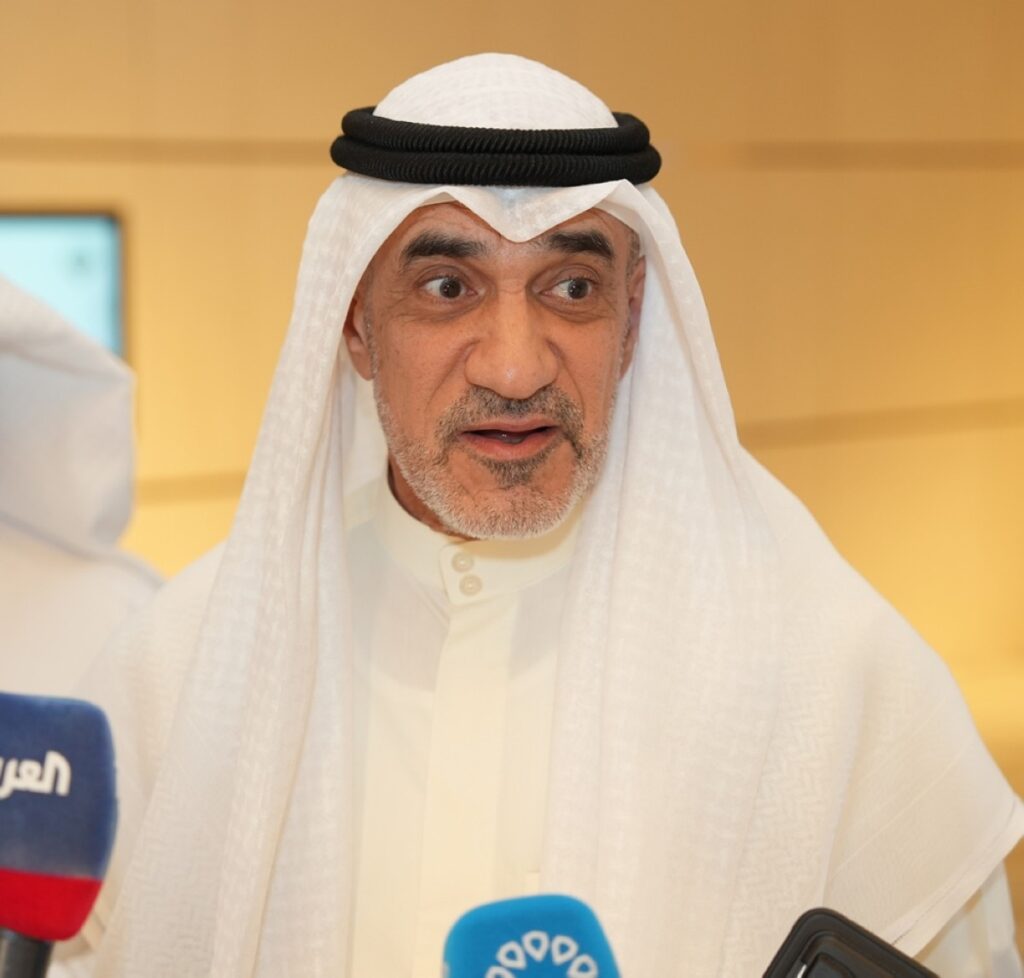Sheikh Fahad points out visas can be obtained ‘within 5 minutes’, vows ‘best is yet to come’
KUWAIT: First Deputy Prime Minister and Interior Minister Sheikh Fahad Al-Yousef Al-Sabah said Kuwait has no restrictions against any nationality to visit Kuwait, stressing Kuwait’s entry visa is “one of the fastest in the world to obtain, as it can be issued within five minutes.” The minister said all foreign nationals are welcome to visit Kuwait as long as they respect the country’s laws and regulations, adding that “procedures to obtain residencies and visit visas have been made easy”.
Sheikh Fahad said Kuwait is undergoing continuous legislative development that contributes to improving the country’s service and security systems. He stated the development covers all sectors of the interior ministry, adding citizens, residents and visitors will soon feel its results, affirming that “the best is yet to come”.
When asked about the two platforms — Kuwait Visa for issuing entry visas to the country and Visit Kuwait for obtaining permits to organize all types of events — Sheikh Fahad explained that the two systems are complementary. Regarding the new traffic law, he said that “an alternative penalties system has been approved and will be implemented in the near future”, adding that Kuwait “has benefited from the experiences of some Gulf Cooperation Council countries in developing a model compatible with local laws”.
On cooperation among the interior ministries of the GCC member states, Sheikh Fahad said they operate through an integrated system for information exchange and top-level coordination to maintain security and stability of the member states. He highly praised the great support that Kuwait’s security sectors receive from HH the Amir Sheikh Meshal Al-Ahmad Al-Jaber Al-Sabah.
Sheikh Fahad revealed HH the Amir has signed the new anti-drugs law that stipulates harsher penalties on violators and which expands the application of the death penalty. He added the law will be published in the official gazette Kuwait Al-Youm soon to become effective. The minister said Gulf countries have succeeded in greatly reducing the smuggling of drugs into their countries by foiling major smuggling attempts. He reaffirmed that Kuwait possesses an advanced radar system that covers both its maritime and land borders and has helped prevent large quantities of narcotics from entering the country.
Meanwhile, undersecretary of the ministry of electricity and water and renewable energy Adel Al-Zamel said on Monday that the ministry is still studying the issue of raising charges on electricity and water. “This issue is still under study” said Al-Zamel, adding that the ministry is taking every care not to impact low-income consumers and to prevent overconsumption of water and power.
The official did not give any timeframe for the study to be completed or the scope of the increase in electricity and water charges. Officials have maintained that the production cost of both power and water is much higher than the charges obtained from consumers. Al-Zamel said that the ministry is still negotiating the project of power storage batteries, which is expected to have a storage capacity of between 1,000 and 1,500 megawatts of electricity. He said the project is expected to be implemented in 2027 in accordance with the needs of the country.
Al-Zamel said that Kuwait has an agreement with the Gulf power grid to import electricity from neighboring Gulf states during the summer months, when temperatures soar above 50 degrees Celsius. He added the ministry will complete later this month a new link with the grid to increase import capacity to face any potential rise in consumption. Last year, Kuwait imported about 1,000 MW of electricity through the grid, which was sufficient to meet rising consumption in the country. Kuwait is also working on projects to raise its local production.

